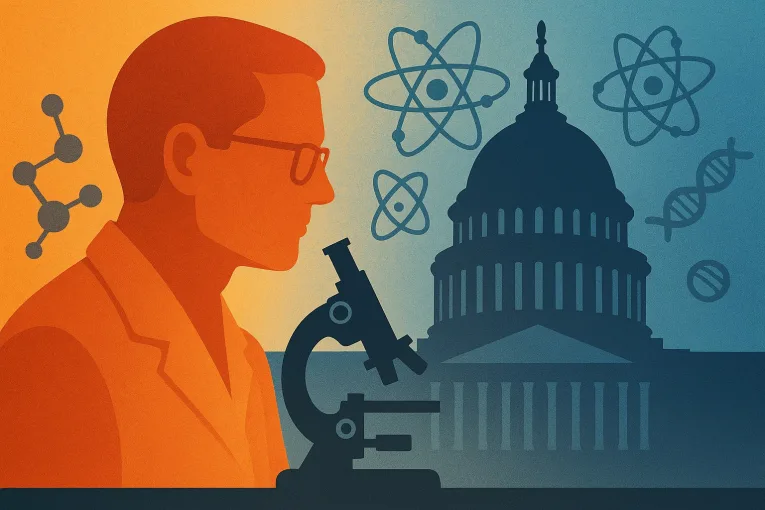
SAN FRANCISCO, CA – Amid concerns over cuts to federal science agencies and access to vaccines under the Trump administration, California lawmakers are advancing new legislation to reinforce the state’s scientific leadership and protect public health.
State Senator Scott Wiener (D-San Francisco) has introduced SB 829, which would create the California Institute for Scientific Research (CISR)—a new state agency tasked with funding and supporting scientific research. The bill also empowers the state to expand vaccine production and distribution under the CalRx initiative, a state-run program aimed at lowering drug prices and increasing access to essential medications.
The proposal comes as the federal government—under President Trump and the Department of Government Efficiency (DOGE), led by Elon Musk—implements sweeping reductions to major science agencies, including the Centers for Disease Control and Prevention (CDC), National Institutes of Health (NIH), National Science Foundation (NSF), and others.
Senator Wiener warned that the cuts jeopardize California’s role as a global leader in science, technology, and healthcare innovation.
“As Trump, Musk, and RFK Jr. tear apart federal science leadership, California must step up for science,” said Wiener. “Scientific research is absolutely essential to our efforts to lower costs for families, respond to climate change, and protect the health of our children.”
The California Institute for Scientific Research
SB 829 would establish CISR within the state’s Government Operations Agency. The Institute would be empowered to issue grants and loans to public and private research institutions across a wide range of scientific fields, including:
• Biomedical and behavioral research
• Climate science, weather, and oceanic systems
• Emerging disease threats and public health
• Drug and medical device safety
• Environmental and community health initiatives
A new Scientific Research Council would be created to set strategic priorities and oversee the Institute’s long-term goals.
Vaccine Production through CalRx
The bill also addresses rising concerns about vaccine access amid changes to federal health infrastructure. Under SB 829, the CalRx program would be authorized to partner with private manufacturers and public health entities to produce and distribute vaccines in California.
Supporters argue this move could help California avoid public health crises such as the recent measles outbreak in Texas and insulate the state from national vaccine supply disruptions.
Science and the California Economy
California is home to some of the most prolific research institutions in the world. The University of California system ranks as a top generator of U.S. patents, and the state receives nearly 30% of all federal research funding. California also leads the nation in biotechnology research and development, accounting for 47% of national spending and 53% of total revenue in the sector.
With federal cuts threatening this ecosystem, proponents of SB 829 say state intervention is critical.
“California must fill the void left by federal retreat,” said Wiener. “We can’t let our research infrastructure collapse under political pressure. Our future depends on it.”
Legislative Support
SB 829 is jointly authored by Senator Akilah Weber Pierson (D-La Mesa) and co-authored by Senators Josh Becker (D-Menlo Park) and Jerry McNerny (D-Pleasanton).
The bill is expected to face committee hearings in the coming weeks as lawmakers deliberate the state’s response to shifting federal priorities.